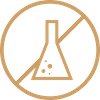Tannins are a group of secondary phytochemicals, also known as plant tannins, which are bioactive substances that act as a natural defence and protective agent against parasites, fungal attack and adverse weather conditions such as UV radiation and temperature fluctuations.
The brown algae (Ascophyllum nodosum), also known as knotted seaweed, is a relatively slow-growing algae that is mainly found in regions from the northern Atlantic to Canada and Greenland. On its distinctive side branches there are "swim bladders" filled with air, which give the algae buoyancy. The leathery, flat shoots are light yellow to olive-brown in colour. In their bushy growth habit, they can reach a length of up to 2m. Brown algae are also particularly rich in plant tannins.
The seeds of the grape (Vitis vinifera) are also rich in tannins, primarily oligomeric proanthocyanidins, which are categorised as flavonols. Proanthocyanidins are found in a variety of fruits and plants, including the seeds and skins of grapes, berries and citrus fruits, but also in the protective bark layer of trees.






















